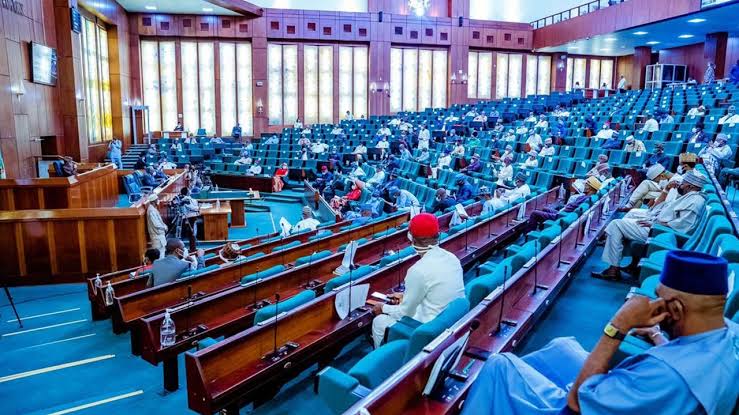The House of Representatives has begun the investigation of importation of adulterated petroleum products into the country; the difficulties of domestic refiners in accessing crude oil feedstock and the broader threats those issues pose to Nigeria’s energy security.
Speaker of the House, Hon. Abbas Tajudeen reiterated this at the inauguration of joint Committees on Petroleum (Downstream and Midstream) at the National Assembly complex in Abuja on Monday.
Represented by Deputy Speaker Benjamin Kalu, Abbas expressed concern over the resurgence of fuel queues at petrol stations, the increasing cost of Premium Motor Spirit (PMS), and the unavailability of crude oil feedstock for downstream domestic refineries.
He said the investigation will also extend to other related issues impacting the sector; saying the quality of petroleum products imported into Nigeria has come under scrutiny, and the authorities must ensure compliance with global standards.
The Speaker insisted that the Nigerian Midstream and Downstream Petroleum Regulatory Authority (NMDPRA) and the Standards Organization of Nigeria (SON) must guarantee that all petrol imported into the country was rigorously tested in laboratories to meet the standard sulphur and octane levels.
“It is unacceptable that the petrol imported into the country contains high sulphur levels, is leaded, and has low octane levels – as we notably experienced in the recent past that even led to socio-economic losses on a national scale including the knocking down of the engines of vehicles of Nigerians in their hundreds.
“In carbon control economies, maintaining high octane levels is a significant regulatory issue for both energy regulators and environmental protection agencies. The lower the octane level, the cheaper the cost of refining, but this should not be at the expense of quality and environmental standards.
“The role of regulatory bodies such as the Standards Organisation of Nigeria (SON), the National Environmental Standards and Regulations Enforcement Agency (NESREA), and the NMDPRA is pivotal in ensuring that the petrol consumed in Nigeria is of environmentally friendly grade.
“One critical aspect we must address is the infrastructure for quality assurance that enables robust testing of petroleum products with the standard practice for manual sampling fully adhered to.
“It is expected that the joint committee on this nationally important assignment will carry out investigations on the quality and the number in of laboratories that both the
NMDPRA and SON have or use for their tests and return with actionable feedback.
“As for the difficulties encountered by domestic refiners in accessing reliable supplies of crude oil feedstock for their refineries, it must be reiterated that
President Bola Ahmed Tinubu is fully committed to providing a level playing ground for producers and refiners to do business in the industry.
“Therefore, I implore the rule of engagement to ensure that the pricing model from the oil producers does not hinder the domestic refineries,” he added.
In their remarks, co-chairman of joint investigative committees; Hon. Ikenga Imo Ugochinyere (Downstream) and Hon. Henry Okojie (Midstream) called on all stakeholders to provide comprehensive support, including essential information and documentation.
The co-chairmen urged refinery operators, importers, producers, and marketers of petroleum products to share their complaints, suggestions, and independent facts.
“To ensure a thorough examination, the committee plans to: Conduct laboratory investigations at all local refineries, marketer and importer facilities, and regulatory agency labs such as the Nigerian Midstream and Downstream Petroleum Regulatory Authority (NMDPRA), Visit various filling stations of different marketers, importers’ depots, and other relevant sites to collect samples for analysis.
“These samples will be examined in their labs, and also in alternative private independent labs to ascertain sulphur levels and other critical components. The committee will hire an internationally certified lab and where possible conduct live testing of all imported and locally produced products to help resolve the issues. The results of such testing on all imported and produced petroleum products, will be announced publicly.
“The committee affirmed that apart from finding a final solution to the alleged embarrassing issue of non-availability of crude supply to domestic refiners both modular and big refiners, the findings will stretch to crude produced and the quantity that ought to go to local refiners and the reasons for falling short, the impact of crude forward sales on availability of crude to domestic refiners and other issues,” they said.
The lawmakers said letters of invitation for paper submissions and appearances have been dispatched to key stakeholders, including the minister for Petroleum (Oil), the management of NNPC, the GCEO Mele Kyari, executive vice president Downstream, and authority chief executive of NMDPRA, Operations Officers, and their lab heads or testing partners.
Others include IPMAN, PETROAN, NUPRC CEO, independent oil producers, international oil companies (IOCs), importers, marketers, and depot owners.


